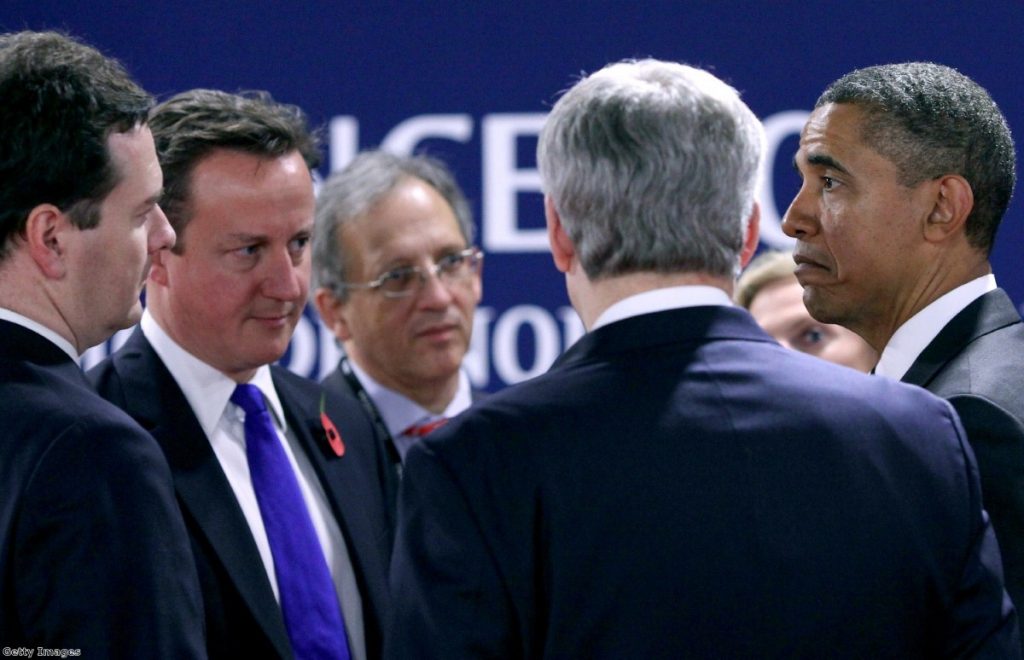Cameron hits out at eurosceptic ‘irresponsibility’
By Ian Dunt Follow @IanDunt
David Cameron tried to cast aside opposition to an increase in Britain's IMF contribution today, as old Conservative faultlines over Europe threatened to re-emerge.
In a report back to MPs on the results of the G20 summit in Cannes, the prime minister branded those opposing the increase of "not acting responsibly or in [the] best interests of Britain".
With Germany refusing to use the European Central Bank (ECB) to intervene, the IMF provides the only vehicle to bolster market confidence and liquidity in stricken European economies.


Eurosceptic Tory MPs – newly confident following an 81-member rebellion over the EU last month – consider the increased subscription a backdoor bailout, as does the Labour frontbench team, which wants to encourage rebellion by Tory backbenchers.
"Anybody listening to him would think the G20 summit had been a great success," Ed Miliband told the Commons.
Downing Street is desperate to avoid a vote on the IMF subscription, citing the previous Commons debate on the subject earlier this year which authorised any further increase in IMF funding up to £39 billion.
The IMF is likely to call for something around the £29 billion mark.
"Britain stands ready to contribute within limits imposed by this House," Mr Cameron told the Commons.
Mr Miliband demanded that Mr Cameron "categorically rule out" IMF resources being used indirectly to make up for insufficient funding by the European Central Bank, although it was unclear whether the Labour leader was referring to individual eurozone countries or the area as a whole.
Mr Cameron refused to offer the guarantee, calling the Labour approach a "display of opportunism".
He added: "This is all about politics. They are putting the politics ahead of the economics."
Mr Cameron will spend much of the week frantically trying to appease leading eurosceptics in his own party, who sense an opportunity to claw back powers from Brussels.
Others are concerned the 17 single currency members will come together as a caucus, overriding the views of others in the EU and marooning Britain in a permanent voting minority.
The combination of eurosceptic confidence and eurozone failure present an enormous headache for the prime minister, who will be mindful of divisions between the pro-Europe Lib Dems and fellow Conservatives as well as the government's need to solve the eurozone crisis without alienating backbenchers.

